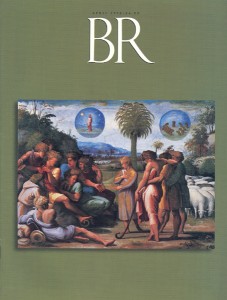Human Wisdom Is Divine
Though often ignored, wisdom literature permeates the Hebrew Bible and the New Testament.

If you were asked to tell someone about the Bible, you would not begin with the Book of Proverbs. The stories of the Creation and the Garden of Eden and of Abraham and the Exodus attract us with their drama and depth. The heroism and struggles of Saul and David and the wisdom and generosity of Jesus captivate our imaginations. The covenants, commandments and prophecies of the Hebrew Bible and the teachings of Jesus in the New Testament draw our attention and call for our assent.
Against the grandeur of these narratives, the homely proverbs, warnings and exhortations of the Book of Proverbs, Job and Ecclesiastes (Qohelet) and of the apocryphal or deuterocanonical wisdom books, such as Sirach (Ecclesiasticus) and the Wisdom of Solomon, seem tame, even boring. Introductions and textbooks to the Hebrew Bible tack wisdom literature onto the end for a hurried review. In New Testament study, Jesus’ teachings about sin, salvation, suffering and the kingdom of God overshadow the practical advice that permeates his sermons, dialogues and discourses. The revelatory and unique, the theological and exaltedly moral, easily eclipse everyday realities and common sense.
Already a library member? Log in here.
Institution user? Log in with your IP address.

